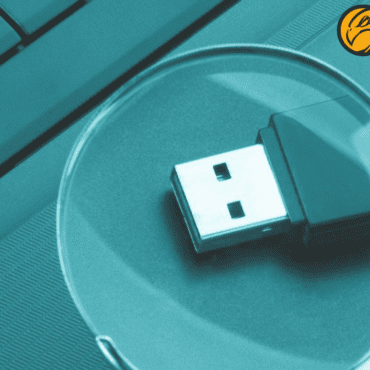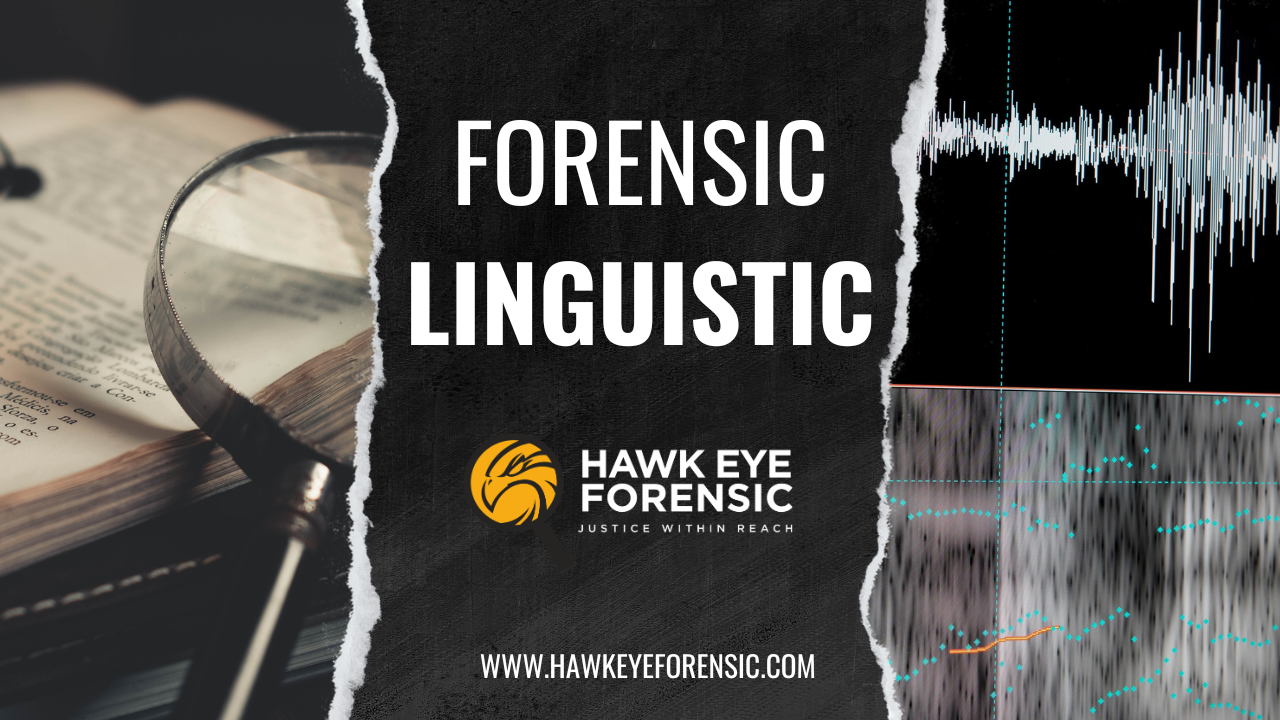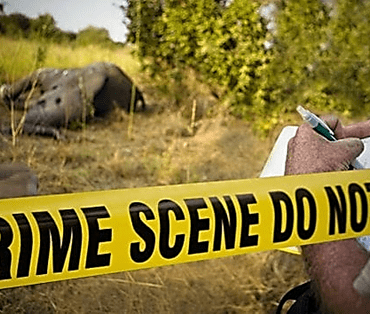Introduction
Forensic linguistics, a fascinating and often underappreciated branch of forensic science, stands at the brink of language and justice. This multidisciplinary field uses linguistic analysis to solve crimes and mysteries and provide vital information for legal proceedings. We go deeply into the complex field of forensic linguistics, covering its origins, methodologies, applications in criminal investigations, challenges, ethical considerations, and the dynamic role it plays in the search for justice and the truth.
Origin and Evolution of Forensic Linguistic
Forensic linguistics, also known as legal linguistics or language and the law, was founded in the middle of the 20th century. The field gained recognition with the pioneering work of linguist Roger Shuy, who applied linguistic analysis to courtroom discussion. Forensic linguistics has developed over time, adopting new technological developments and expanding its applications in various legal contexts.
Methodologies in Forensic Linguistics
- Authorship Identification:
Authorship identification and verification is one of the main uses of forensic linguistics. Linguists analyze written texts to determine the likely authorship of disputed documents. By examining syntax, grammar, vocabulary, and stylistic elements, experts can conclude an author’s identity, background, or emotional state. This methodology is particularly useful in cases involving threatening letters, ransom notes, or other written communications related to a crime.
- Voice Analysis and Speaker Identification:
Forensic linguistics extends beyond written language to encompass voice analysis and speaker identification. Linguists skilled in forensic phonetics analyze speech patterns, accent, pitch, and intonation in voice recordings. This technique aids in determining the characteristics of the speaker, contributing to the identification of individuals in cases involving recorded threats, phone calls, or ransom messages.
Linguistic profiling is the process of constructing a person’s profile through their language usage patterns. Linguists examine linguistic features to gather information about a person’s background, demographics, or psychological traits. In criminal profiling, linguistic analysis contributes to understanding the possible motivations, origins, or affiliations of an unknown suspect based on language characteristics found in crime scene communications.
Forensic linguists conduct authorship comparisons in cases where the authorship of a document is disputed. This involves comparing the linguistic features of disputed texts with known samples of writing from possible authors. The goal is to determine whether a particular individual is likely to be the author of disputed or questioned documents, providing valuable evidence for legal proceedings.
- Language in Cybercrime Investigations:
With the increasing frequency of cybercrimes, forensic linguistics has found new applications in the analysis of digital communication. Cyber threats, online harassment, and hacking attempts often involve linguistic clues that forensic linguists can decipher. The examination of email content, chat messages, or online posts contributes to the identification and conviction of cyber criminals.
Applications of Forensic Linguistics
- Threatening Letters and Ransom Notes:
Forensic linguistics plays an important role in cases involving threatening letters or ransom notes. Linguists carefully analyze the language used in such communications, examining syntax, grammar, vocabulary, and stylistic elements. This analysis helps law enforcement narrow down suspects, understand potential motivations, and build a stronger case.
Linguistic analysis contributes to criminal profiling by helping investigators create profiles of unknown suspects. Forensic linguists help law enforcement determine the background, motivations, and affiliations of the criminal by analyzing language features revealed in communications from the crime scene. This information is very valuable for narrowing down the pool of potential suspects.
- Voice Analysis in Criminal Investigations:
In cases involving recorded threats, phone calls, or other voice-related evidence, forensic linguistics facilitates voice analysis and speaker identification. Linguists examine speech patterns, accent, pitch, and intonation to determine the characteristics of the speaker. This information aids in verifying the authenticity of voice recordings and narrowing down potential suspects.
- Legal Proceedings and Authorship Attribution:
Forensic linguistics plays a crucial role in legal proceedings by offering insights into authorship attribution. When the authorship of a document is disputed, linguistic analysis is employed to compare the disputed text with known samples of writing from potential authors. This method helps in determining whether a particular individual is likely to be the author, supporting or challenging the evidence presented in court.
- Investigating Cybercrimes:
In the digital age, linguistic analysis extends to cybercrime investigations. Forensic linguists analyze digital communication, including email content, chat messages, and online posts, to identify linguistic clues that may lead to the identification and apprehension of cyber criminals. This application is critical in addressing online threats and ensuring cybersecurity.
Challenges in Forensic Linguistics:
- Subjectivity in Language Interpretation:
One of the primary challenges in forensic linguistics is the inherent subjectivity of language interpretation. Different linguists may interpret language features differently, leading to variations in the analysis results. This subjectivity emphasizes the importance of employing multiple experts and establishing standardized methodologies to enhance reliability.
Linguistic biases can impact the analysis of language evidence. Forensic linguists must be alert to avoid biases based on factors such as race, ethnicity, or socioeconomic background. Addressing linguistic biases requires ongoing training, awareness, and a commitment to fair and impartial analysis.
The analysis of language in forensic linguistics often involves the examination of personal communication, which raises ethical concerns regarding the invasion of privacy. Maintaining a balance between the pursuit of justice and respecting individual privacy rights is important to ensure the ethical application of forensic linguistic methodologies.
- Proper Use of Linguistic Evidence in Court:
Presenting linguistic evidence in court requires careful consideration of its probative value and potential impact on legal proceedings. Forensic linguists must adhere to established standards and guidelines to ensure the proper use of linguistic evidence, avoiding misinterpretation or misuse in the courtroom.
- Continuous Evaluation and Adaptation:
The field of forensic linguistics is dynamic, with advancements in technology and changes in language usage. Forensic linguists must engage in continuous evaluation and adaptation to stay up-to-date with linguistic advancements, emerging technologies, and evolving legal standards. This commitment to ongoing learning ensures the relevance and accuracy of linguistic analysis over time.
Ethical Considerations in Forensic Linguistics:
Ethical considerations are crucial in forensic linguistics, given its potential impact on individuals’ lives and legal outcomes. Forensic linguists adhere to a code of ethics that includes:
- Impartiality and Objectivity:
To eliminate any personal biases that could affect their interpretations, forensic linguists seek to be impartial and objective in their analysis.
Forensic linguists respect individuals’ privacy rights and ensure that their analysis is conducted within legal and ethical boundaries.
Forensic linguists uphold high standards of professionalism in their work, maintaining transparency, honesty, and integrity throughout the analysis process.
To keep up with developments in the field and make sure their analyses follow the most recent standards and procedures, ethical forensic linguists take part in ongoing education.
Conclusion:
Forensic linguistics, a captivating intersection of language and justice, continues to evolve as a crucial tool in the realm of forensic science. Forensic linguists are essential in the investigation of criminal activity, the execution of crucial evidence in court cases, and the advancement of truth and justice. Their expertise ranges from reading threatening letters to figuring out the complexities of online communication. Despite its challenges and ethical considerations, forensic linguistics stands as a testament to the power of language in the relentless quest to uncover mysteries and ensure fairness in the legal system. As technology and language patterns continue to evolve, forensic linguistics remains at the forefront of innovation, adapting to new challenges and contributing to the ever-expanding arsenal of forensic tools.





Post comments (0)